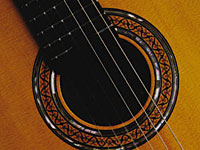Music Studies - MUSCA24812
Stream Summary
Faculty: ARTSC - Faculty of Arts&Social Science
School: School of the Arts and Media
Contact: sam@unsw.edu.au
Program: 4812 - Fine Arts/Arts
Award(s):
Bachelor of Arts (Minor)
View stream information for previous years
Stream Outline
The specific aims of the minor stream in Music Studies are:
- To develop in the student an awareness of the influence of music in the social, cultural, and political domains of human activity
- To nurture in the student an appreciation of the role of music, and its relationship to other disciplines in the Liberal Arts
- To establish a solid grounding in the key concepts and skills that form the basis of musical study and practice
- To recognise the role of historical, cultural, social and political contexts as fundamental to the study of music practice and criticism
- To understand and appreciate a diversity of music forms, values and practices in addition to the Western tradition
- To develop a deep awareness of the ethical dimensions of diverse musical practices
- To develop research skills and methodologies in documenting, analyzing, synthesizing and communicating information about musical practices and musical contexts
- To develop writing and critical skills necessary for the advocacy of music making, music education and music literacy
Graduate Attributes
- Demonstrate cognitive skills that review, analyse, consolidate and synthesize musical knowledge as well as other forms of knowledge.
- Respect for ethical practice and social responsibility are fostered through links with the music industry and music communities and discussions of professional practices in theory and practice alike.
- Demonstrate knowledge of research principles and methods in music studies.
- High levels of oral and written communication, supported with discipline-based forms of communication such as scores and music performance.
- Demonstrate communication skills to present a coherent exposition of knowledge and ideas to a variety of audiences.
- Skills required for collaborations and contribution to the international community are developed through ensemble performances, the study of diverse musical styles and practices or the application of technology in musical contexts.
- An appreciation of, and respect for, diversity through participation in and study of diversity of musical practice and thinking.
- Capacity for analytical and critical thinking and for creative problem-solving through practical and/or theoretical music studies.
- Demonstrate a capacity for self learning and musical leadership in collaborative situations.
- An ability to engage with music in its interdisciplinary context through the study of music history, music ethnography/anthropology, and music technology.
- Demonstrate an ability to adapt knowledge and skills in diverse musical contexts.
- Demonstrate a broad and detailed understanding of Western music literature and the musical-theoretical concepts that underpin it.
- The skills involved in scholarly enquiry, such as information literacy, critical analysis, and writing.
- An in-depth engagement with discipline-specific knowledge, such as, score reading and writing skills, inner hearing, music theory, repertoire knowledge and music technologies.
Stream Structure
- MUSC1603 Materials and Structures of Music 2 (6 UOC)
- MUSC2116 Sound, Society & Self in World Music (6 UOC)
- MUSC1703 BA Performance Laboratory 1 (6 UOC) or MUSC1706 BA Performance Laboratory 2 (6 UOC) and/or
- Prescribed Music Electives
- 12 UOC Prescribed Music Electives
- ARTS2006 Music and Dance (6 UOC)
- ARTS2009 Technical Production (6 UOC)
- MUSC2113 Film Music (6 UOC)
- MUSC2117 Popular Music (6 UOC)
- MUSC2118 Music in Bali (6 UOC)
- MUSC2332 Electronic Music (6 UOC)
- MUSC3102 Psychology of Music (6 UOC)
- MUSC3104 Contemplating Jazz (6 UOC)
- MUSC3162 Twentieth Century Music (6 UOC)
- MUSC3302 Orchestration and Arrangement (6 UOC)









